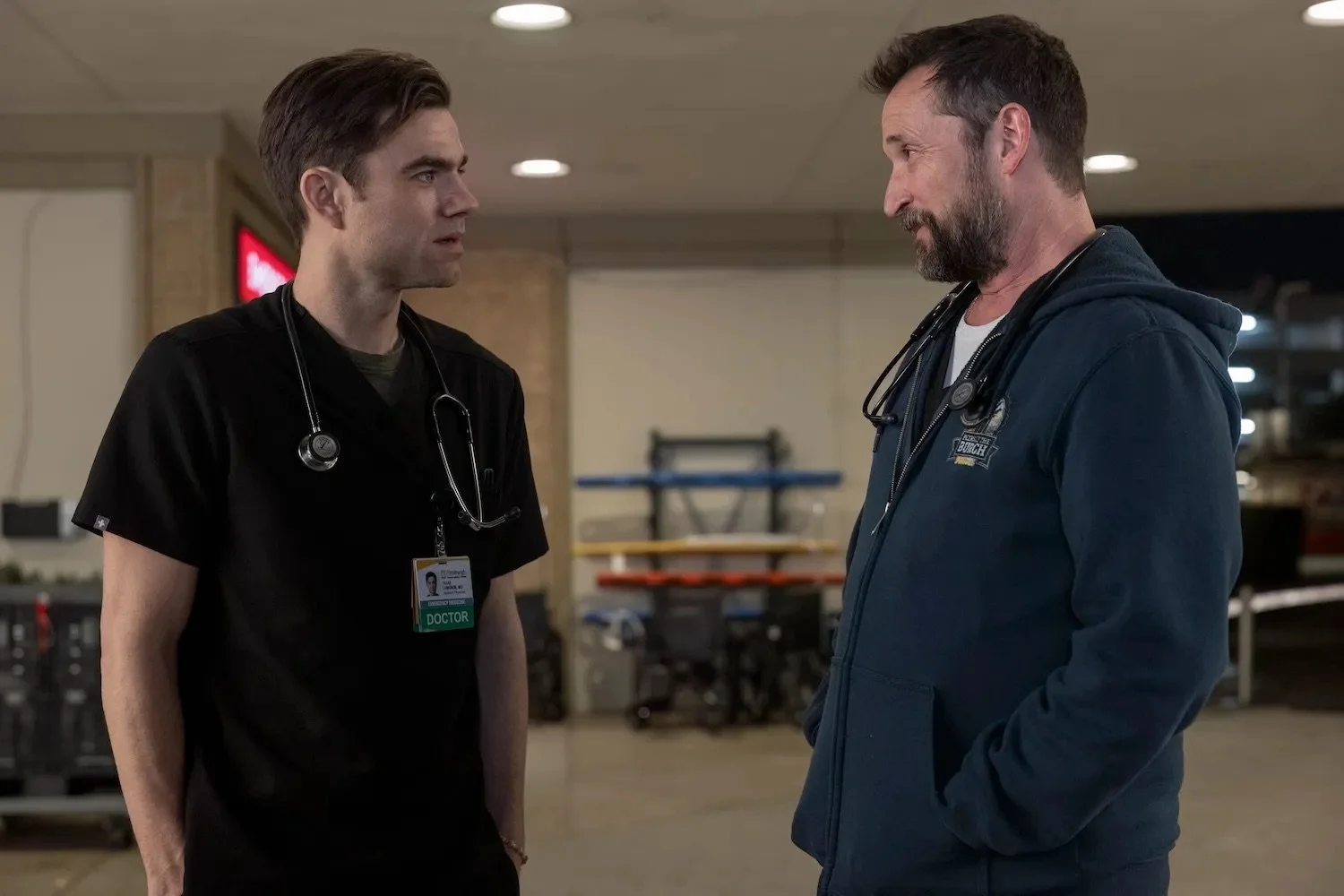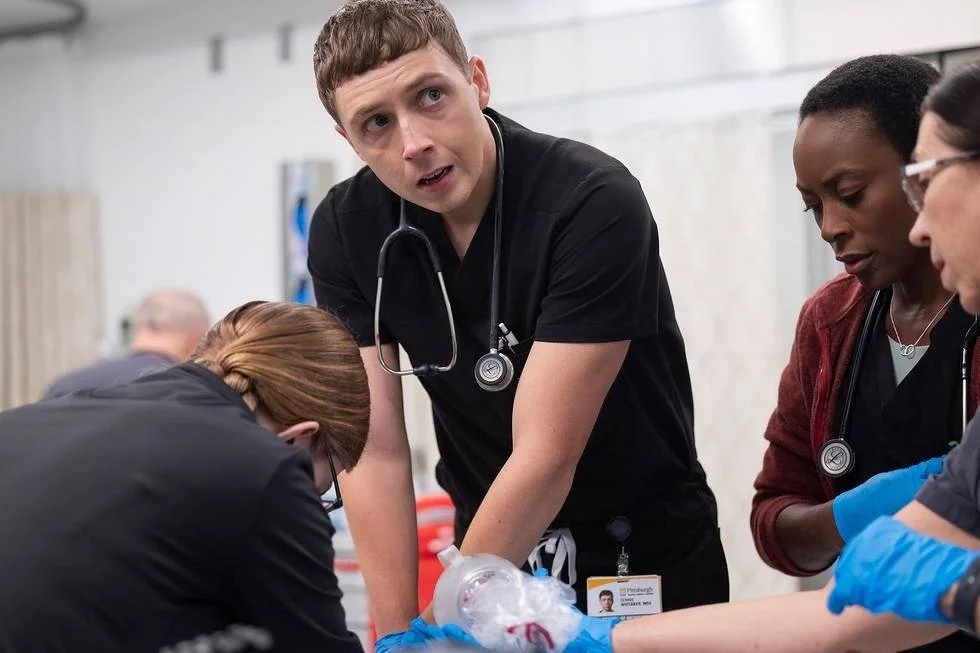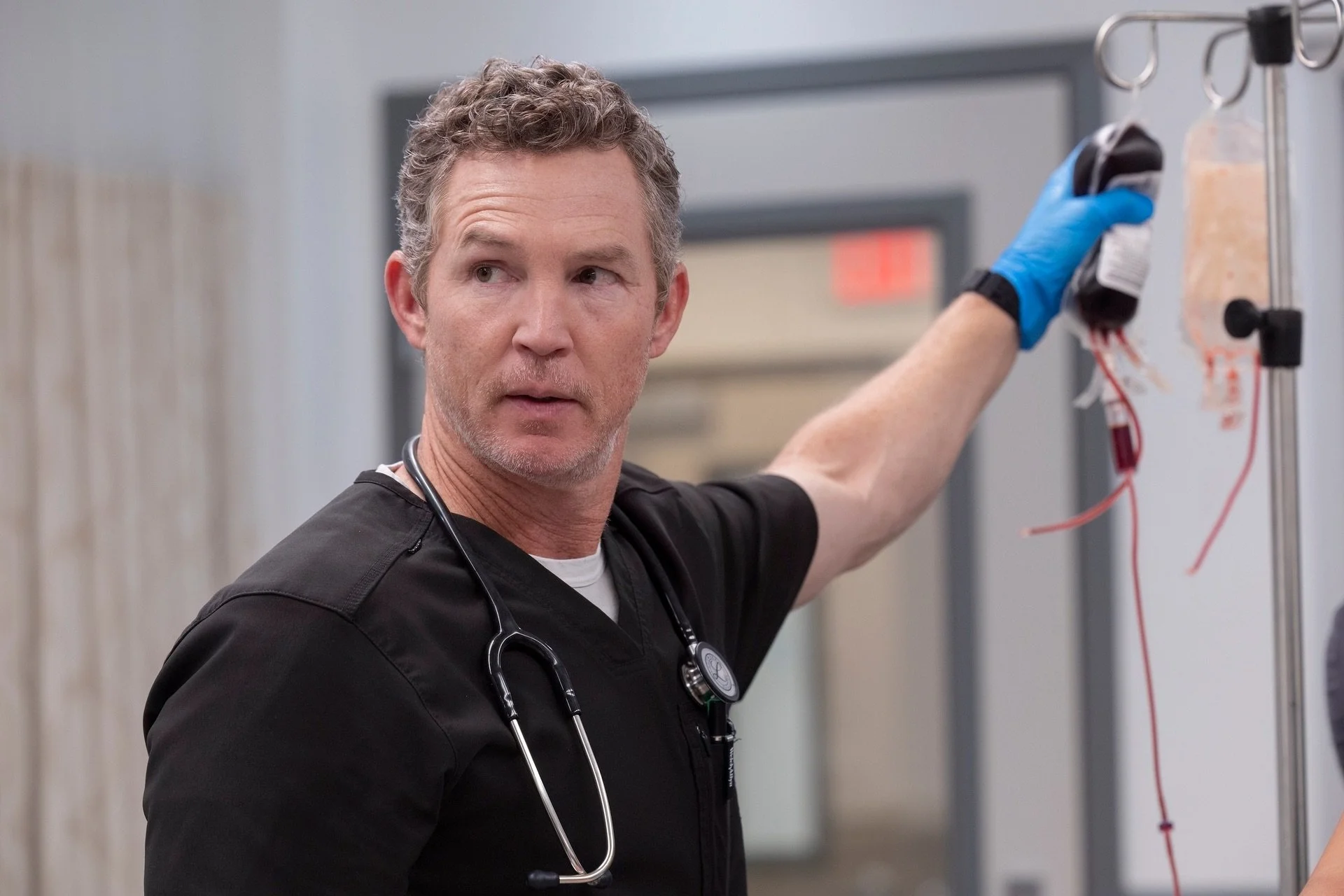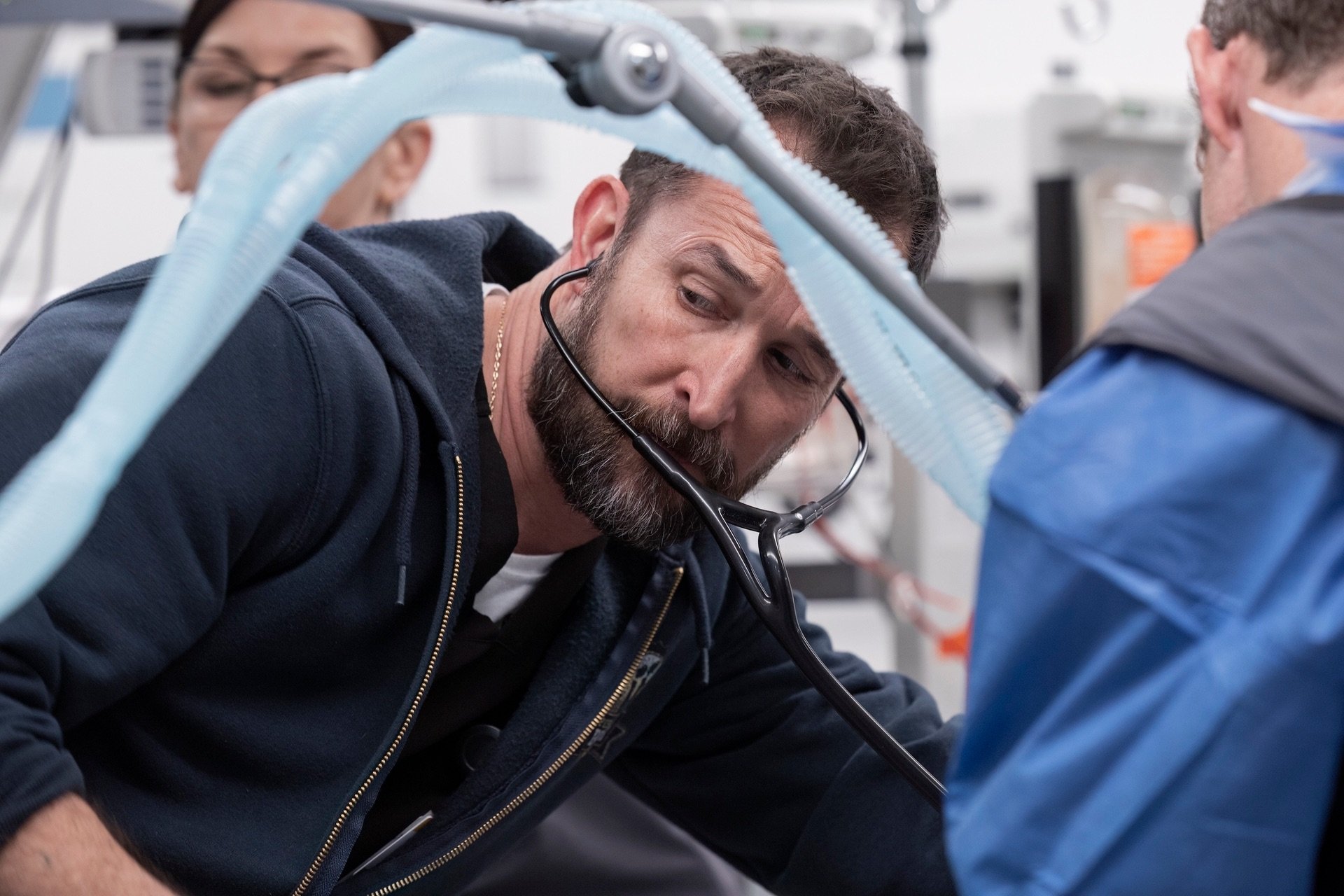‘The Pitt’ Finale Breakdown: Showrunners, Noah Wyle on Season 2, Trump-Era Health Policy, and That Rooftop Reveal
Warrick Page/MAX
MAX's Medical Drama Ends Its First Season With an Emotional Gut Punch, a Subtle Twist, and a Political Forecast
By the end of its harrowing 15-hour day in the Season 1 finale of The Pitt, the ER staff at Pittsburgh Trauma Medical Center has been through hell and back. From fentanyl overdoses to mass shooting victims, the hospital’s emergency department handles an unrelenting stream of cases that reveal the physical and emotional costs of working in frontline medicine. But in true Pitt fashion, the show doesn’t conclude with a massive explosion or a tidy moral resolution. Instead, it offers a beer-soaked wind-down in the park, a moment of grace, and a surprising revelation: Dr. Jack Abbot (Shawn Hatosy) has a prosthetic leg, hidden until now.
And that’s just one of the many creative decisions that reflect The Pitt’s ambition to marry high-stakes hospital drama with grounded, often politically charged storytelling. In interviews, executive producers John Wells and R. Scott Gemmill and star Noah Wyle (who also serves as writer and EP) open up about the real-world influences shaping Season 2, including Trump’s proposed cuts to public health programs and the show’s commitment to medical authenticity.
Anatomy of a Finale
Warrick Page/MAX
Wyle’s Dr. Robby Robinavitch ends the season where he began: haunted by the ghosts of the COVID era. After failing to save a shooting victim who also happened to be his stepson's girlfriend, Robby is pushed to the brink. In a rooftop conversation that mirrors the one in the season premiere, Abbot calmly talks Robby down from the psychological ledge.
"We survived as a species because we learned how to cooperate and communicate," Abbot tells him. "All you can do is focus on the medicine."
Wyle says Robby's arc isn’t over. In Season 2, the character will begin a reluctant journey toward therapy and recovery, complicating his image as the emotionally contained senior physician. "He's going to wake up the next morning and no longer be able to pretend he doesn't need help," Wyle says. "I'm interested in exploring someone who wants to get better but resists the process."
Real-Time, Real Stakes
Warrick Page/MAX
The creative team confirms that The Pitt will maintain its real-time format in Season 2, with each episode representing one hour of a single ER shift. While a time jump of 9–10 months is planned—to allow for character development and to accommodate Pittsburgh’s filming season—the shift will still unfold in a 15-hour structure.
"A lot of people pitched doing a night shift," Wyle says. "But we like rules. If you don't have to break a rule, you shouldn't."
That continuity will help keep the show’s tone grounded. Says Wells, "It relieves you of the responsibility of excessive medical melodrama. You learn about people through their daily work."
Structural Reveals and Surprises
Warrick Page/MAX
The finale’s biggest twist—Abbot’s prosthetic leg—was planned from the very beginning. "We wanted it to be a quiet surprise," says Gemmill. "He’s a vet. It's part of his makeup. That's why nothing fazes him."
Another narrative seed planted early was Dennis Whitaker (Gerran Howell) secretly living in an abandoned hospital wing. The subplot highlights systemic failures in the medical profession—including underpaid interns and unused infrastructure that strains emergency room capacity.
"That whole wing not being used impacts the ER. If it were open, there’d be more beds upstairs," says Gemmill.
Season 2 and the Trump Factor
Warrick Page/MAX
Though showrunners are careful not to make overt political statements, the team is bracing to reflect the implications of Donald Trump’s proposed dismantling of public health programs.
Wells says they are actively consulting with medical advisors on the ground to forecast worst-case scenarios.
"We’ve asked them, 'What are the stopgap measures? Who are the most vulnerable? What happens if the vaccinations don’t get distributed?'" he says. "We want to be accurate, but we also don’t want to get ahead of the headlines."
Wyle echoes this concern: "One of our advisors just returned from Africa, devastated that USAID cuts will leave medicine to expire undelivered. That’s the reality."
Casting Notes and Creative Direction
Warrick Page/MAX
While certain characters like Langdon (Patrick Ball) are confirmed to return, others, like Dana (Katherine LaNasa), remain in contract limbo. Wyle hints that fan favorites will be back, but the reality of rotating ER staff will eventually need to be addressed.
As for whether future episodes will experiment with format, the team remains skeptical. "It’s tempting to get arty," says Wyle. "But we don’t need to. The discipline is to make this format work better."
THE CINEMA GROUP
YOUR PREMIER SOURCE FOR THE LATEST IN FILM AND ENTERTAINMENT NEWS














